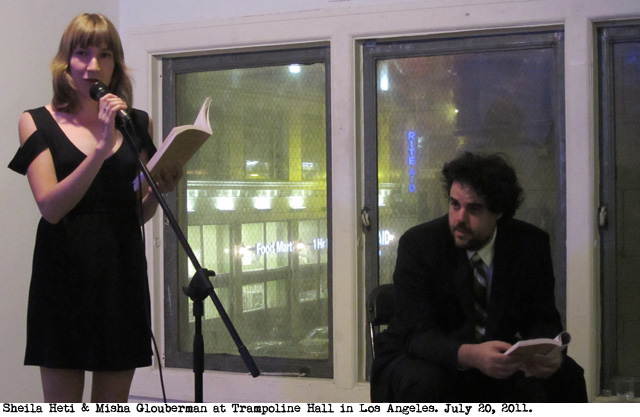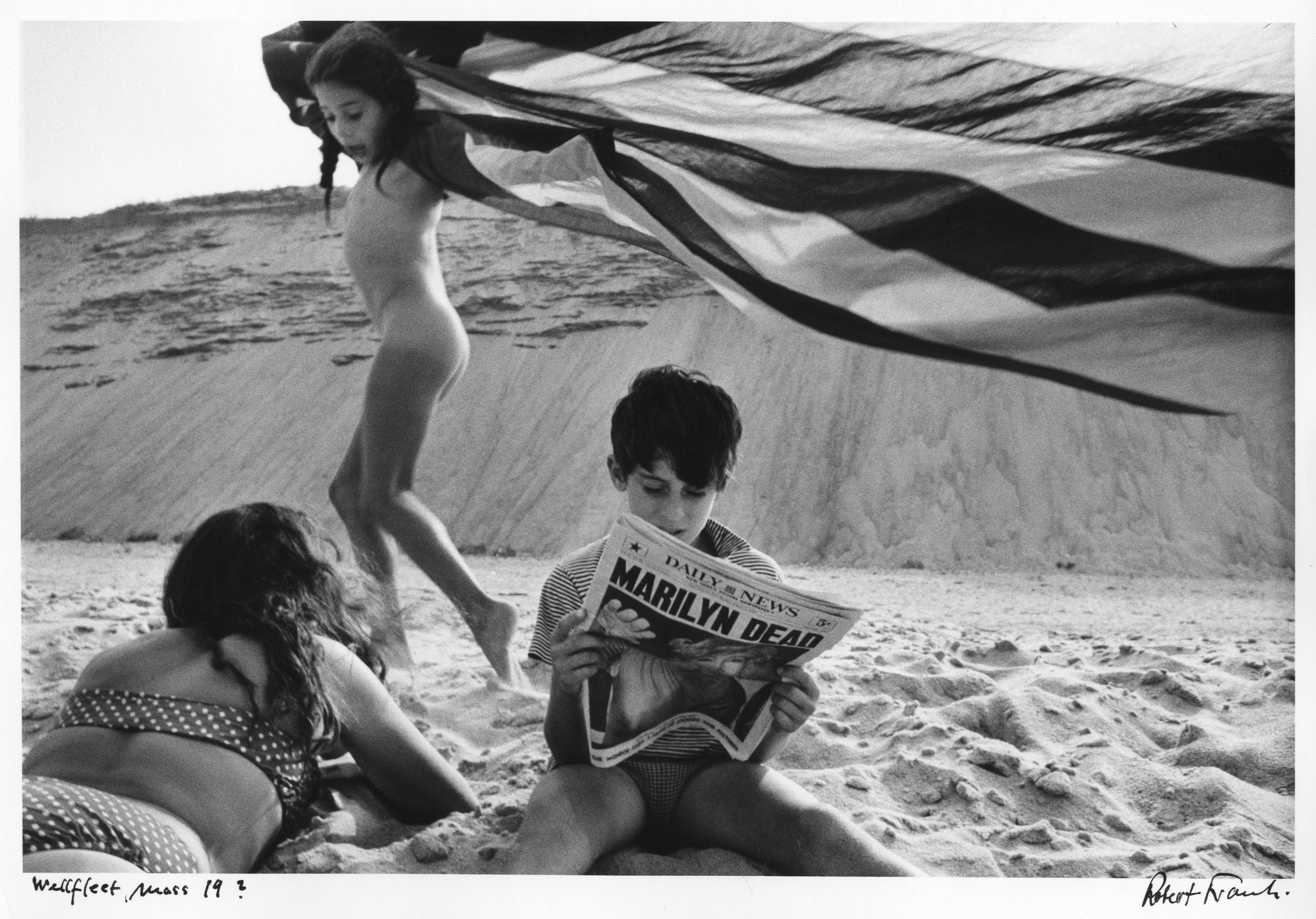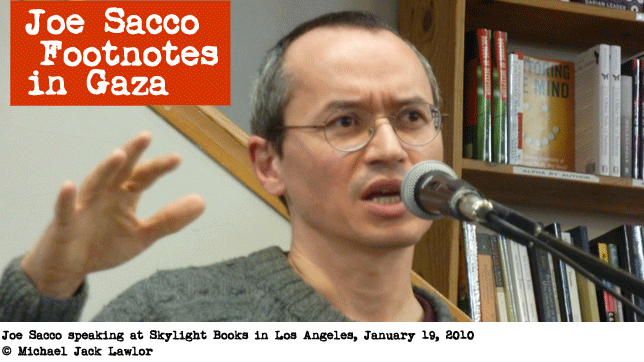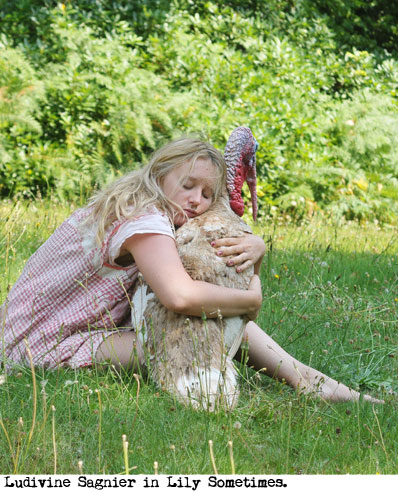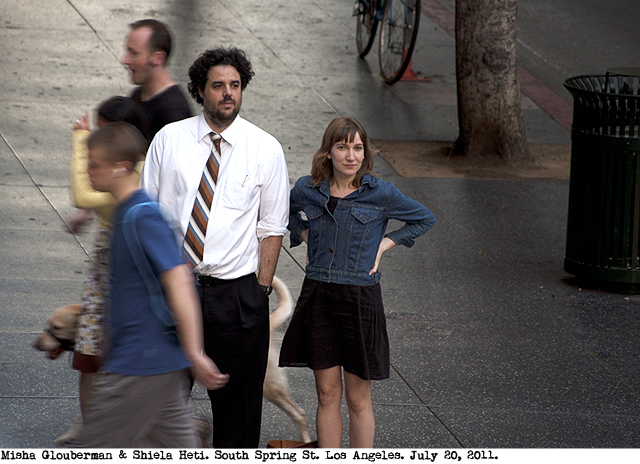
Sirens began to wail as soon as Misha Glouberman started speaking at Trampoline Hall in Los Angeles. Red light from the trucks on the street below mixed with the chartruese glow of a nearby building, creating a surreal effect in the second floor windows.
“The siren means everything is Ok,” said Misha. “The fire is elsewhere. Fire does not spread.”
Trampoline Hall arrived in Los Angeles as part of a promotional tour for The Chairs are Where the People Go, a miscellany of Misha’s observations typed up by Sheila Heti. Topics include improv, bars, neighborhoods, gyms, relationships and domesticity. The book blurs the distinction between author and subject, with Heti serving as Glouberman’s amanuensis.
“Misha sat across from me at my desk. As he talked, I typed,” wrote Sheila in the Forward.
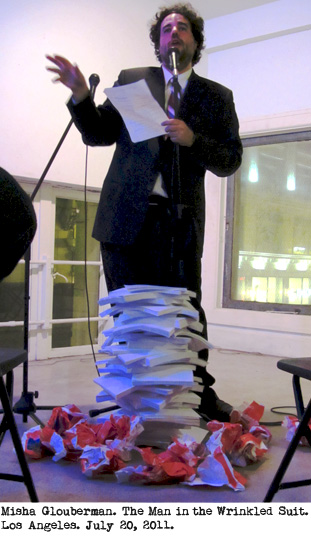
Trampoline Hall is a Toronto-based lecture series with roots in improvisational theatre and comic books. Sheila Heti came up with the idea after attending a multi-media presentation in 2001 by Ben Katchnor, an American cartoonist.
“Trampoline Hall was just one little detail from his comic but the name stuck with me,” said Sheila. “At the time it felt like you couldn’t really go and see people talk unless they had some kind of distinction or something. So it was nice to just get regular people on stage to talk.”
Trampoline Hall lectures are fun and people can play around a bit with the idea of authority and the way it is projected. The shows experiment with communication and social status.
“I’m interested in things like failure,” said Misha. “Some of the improv stuff comes from an improv teacher named Keith Johnston. He has a wonderful book called Impro. He has a wonderful thing in the book about going on stage and trying to be boring. He thought people got on stage and constantly tried to be interesting. He would scream, ”Be more boring. Do something more obvious.”
In Los Angeles, Busy Philipps spoke on “Is Monogamy a Trick?” and Ezra Buzzington spoke on “Impostor Syndrome?”.
Both speakers are Hollywood actors – Buzzington appears in the movie Fight Club and Philips was in ER, the TV show. The topics they chose were loosely based on chapter titles from The Chairs are Where the People Go.
Questions and answers are an important part of Trampoline Hall. At the start of the show Misha challenged the idea that there is no such thing as a bad question.
A bad question, Misha suggested, can be identified by the emotional state you are in when the question surfaces. If your question releases a sense of wonder and curiosity, you probably have a good question. If the thought of your question ignites feelings of pride, then it’s most likely a bad question.
“Part of what energizes the room is the sense that if you are in the audience at Trampoline Hall you could also potentially be on stage,” said Sheila. “You have more empathy for the person who is lecturing and you understand that the person who is lecturing is like you, not an expert, not somebody who has credentials. Something interesting happens.”
